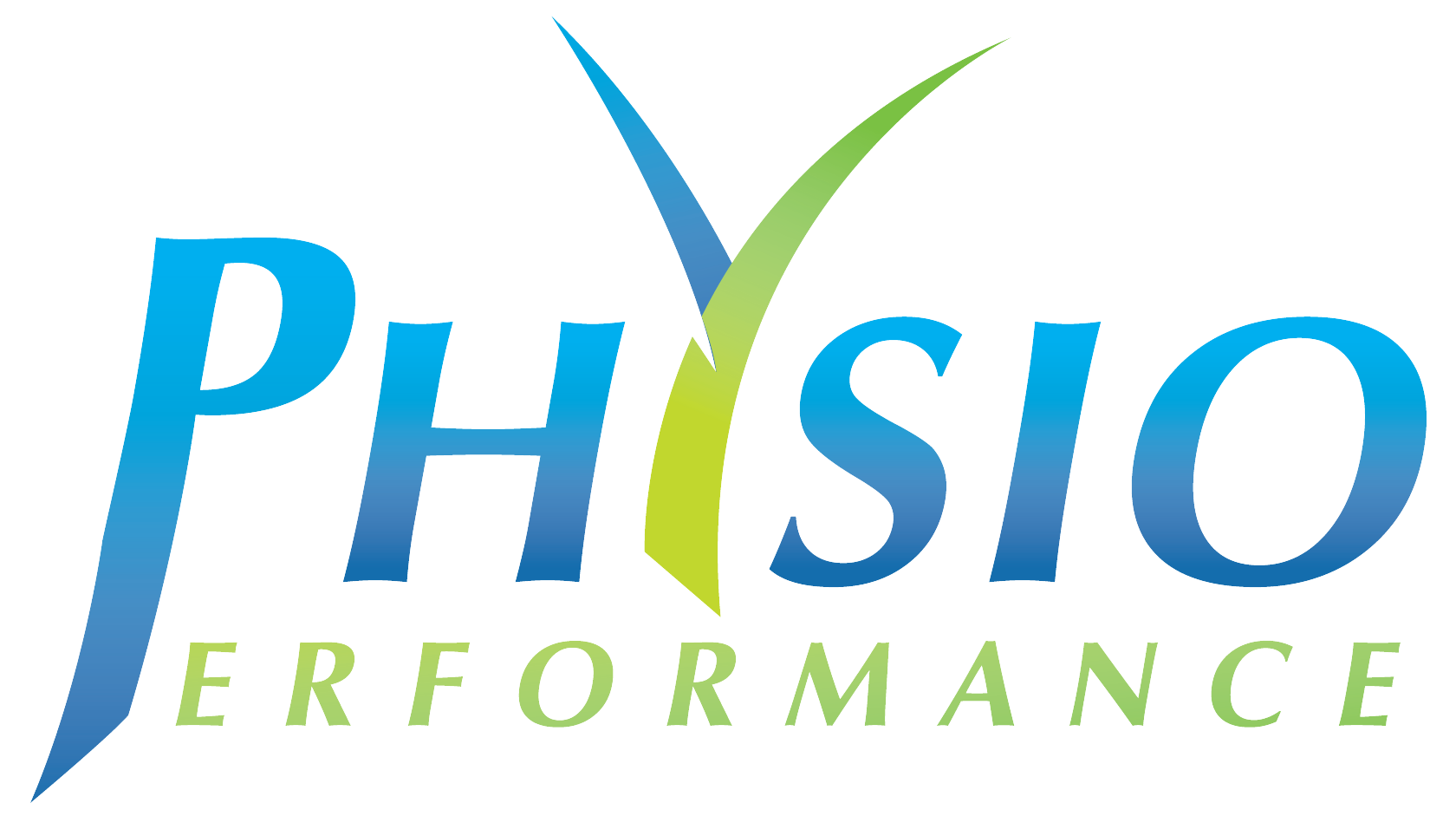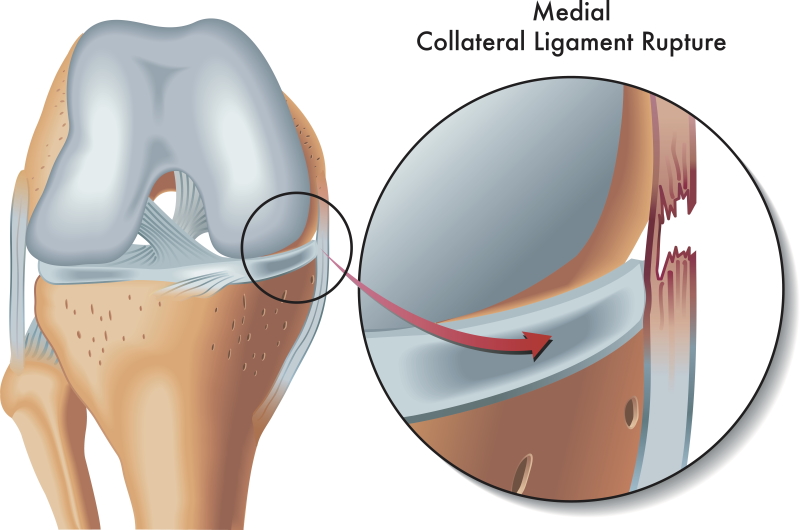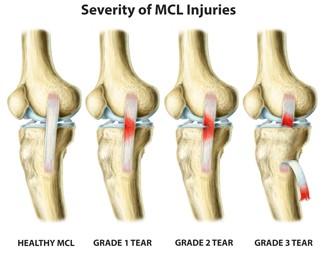One of the most common knee injuries seen among athletes here in the Physio Performance clinic is the MCL sprain. The Medial Collateral Ligament (MCL) runs vertically on the inside of the knee, running from the medial femoral epicondyle to the medial tibial condyle. The MCL is responsible for preventing valgus stress to the knee, essentially preventing the knee from caving inwards, as well as limiting rotation of the knee.
Typically MCL strains are traumatic in nature, usually occurring when the patient suffers a blow to the outside of the knee, straining the MCL on the inside of the knee. MCL sprains can also occur in some cases with excessive rotation of the knee in either a flexed or extended position, usually when landing from a height.
Diagnosis
MCL injury can be broken down into three separates grades of severity:
Grade I – stretched and painful but not torn, can still provide stability to the knee.
Grade II – partial tear, painful and some instability present.
Grade III – complete tear, unstable knee joint with associated pain.
Symptoms
MCL injury symptoms can be quite severe depending on the grade of injury. The major symptom immediately after the injury has occurred is pain, pain localized to the inside of the knee. The patient may also report a ‘popping’ sound or sensation immediately after the injury has occurred.
In the days following the injury the patient may report swelling in the area, with or without visible bruising. The patient may also report a feeling of instability, or that the knee ‘feels unstable’.
Treatment
Treatment for an MCL injury generally depends on the grade, a high Grade III injury may require possible surgical intervention. Generally, with grade I and II injuries, pain free range of motion and mobility is the first port of call, the MCL becomes tensioned in full knee extension, so it is important to address range of motion deficits early on.
Once range of motion has been restored, it is important to address any strength deficits around the hip musculature, to avoid any further valgus collapse at the knee joint, strength around the glutes, particularly the external rotators of the hip, is key at this stage. And while the patient is removed from sport, strength work around the whole lower body is advised.
Once the patient is pain free and has increased strength around the hip and knee, we can begin to re-introduce more high velocity movements such as jumping, landing and change of direction activities. A gradual progression must be made to ensure there is little to no chance of re-injury.
Return to Play
If the patient has gone through a steady progression of change of direction, jumping and landing activities, a return to sport can begin. Patients may benefit from an MCL strapping in the early stages of return to play, however it is advised that the patient be weaned off the strapping gradually, so as not to become over dependent on the stability provided by the strapping.
The end goal of the rehab process is to provide stability to the knee in order to cope with the demands of their sport. The rehabilitation process for an MCL sprain can take anywhere from 1 week (grade I) to 8+ weeks (grade III).
The Physio Performance Way:
We are the specialists here in the Drogheda area dealing with MCL injuries.
We can guide you right through the whole journey: From initial diagnosis to a full recovery.
A rehabilitation program will be customised for you to help you regain the motion in your knee and help you build a more confident and stronger knee.
Next step:
Want to get in touch with our team?
Looking for some advice?
We’d Love to Help!
You can contact us on 041-9877059 or at info@physioperformance.ie. You can also book an appointment online with us HERE.




